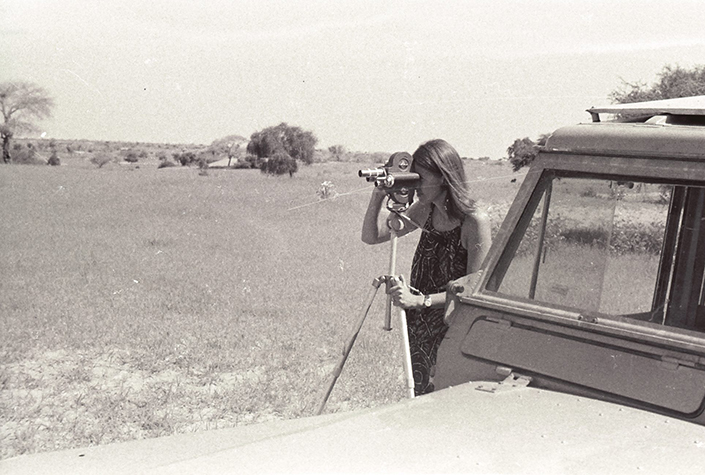Already as a child, Holtedahl became fascinated by people and objects from different life worlds. As a young adult she went to Paris in 1964 and watched screenings of ethnographical films in the Musée de l’Homme for the first time. There she also met Jean Rouch, who fueled her interest in Africa, film, and ethnology.
Early on, she became aware of the difficulty of conveying impressions of Africa. In her first film, NIGER-NORGE (1975), she addresses the living conditions of women in a village in eastern Nigeria, which she contrasts with corresponding scenes shot in Tromsø. In this way, she provides a provocative and tongue-in-cheek glimpse of what Westerners consider normal as a way of overcoming stereotypes. The potential and challenge of adequately translating different life worlds through film continues to occupy the director up to this day. In her works, Holtedahl always has Western audiences in mind – their longings and their prejudices. Her main goals are to enable them to empathize with the protagonists and to create space for identification.
While sensory ethnographic films (freiburger film forum 2015) aim to achieve an almost physical reaction on the part of the audience concentrating on sensory perception, Holtedahl follows a narrative strategy and strives for verbal exchange and social competence. She shares everyday life as a dialogue partner with the people in front of the camera, who open up and accept her. Long-term research relationships evolve into friendships and a sense of closeness, offering deep insight into life stories and sometimes personal dramas.
WIVES enters the inner circle of a family and never leaves their house, whereas THE CHÂTEAU follows the outside activities of a businessman. Here, Holtedahl’s focus shifts to the spheres of influence of a man in a powerful position, whose decisions affect many people’s lives. Her research leaves the family fabric and turns to society’s elite in order to illuminate social conditions and dependencies. In this film, we are again baffled by the palpable ease with which the protagonist treats her as a filmmaker. Holtedahl lives with these families as if she belongs. This is how her wonderfully unpretentious way of making films unfolds.





